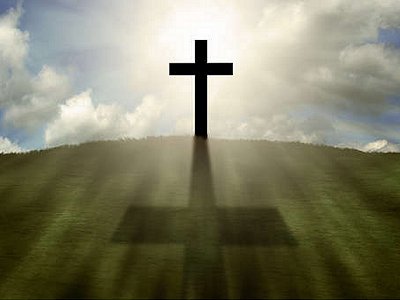
THE SHADOW
It's official: Britons don't talk about death. If only we knew how to co-opt it into ordinary life.
We have an edgy relationship with dying; as Woody Allen once said: ‘I’m not afraid of death, I just don’t want to be there when it happens’. Most of us can identify with that and the Dying Matters Coalition has demonstrated just how distant we like to keep this relationship.
A survey by ComRes has shown that the vast majority of the public (83%) believes that people are uncomfortable discussing death and dying and more than half with a partner are unaware of their loved ones’ end of life wishes. Less than one in three have let someone else know their funeral wishes.
Assimilating talk of death into everyday life is an understandably hard process. As bereavement is surrounded with such pain and sadness, it is not surprising that people would rather not share their feelings until it is absolutely necessary. For some this terseness endures right to the end, where families prove unable to name its stalking presence.
Many of us have seen other people face up to their death with unflinching honesty and come to terms with their mortality, proving it is possible to do this. It may be harder if you are one of those left behind. In a culture of quick fixes, there is something unbearably oppressive about a long journey that must be taken step by step and where no trick of the mind enables us to pretend we feel stronger before time.
In fairness to death-denying Britons, there would be something wrong with us if we thought about death constantly; this is the terrible mental landscape of the suicidal. Nevertheless, Christian people sense that faith should afford a distinctive perspective on the role of death in the midst of life. We should not permit our horizons to become so shortened that we never see beyond the next weekend; the less we think about our destiny, the more inhibited we become in living as God would want.
We face two ways which leaves us with two critical questions. The first is what do we want to present to the Lord when we meet him? Speaking of the heavenly Jerusalem, Revelation 21:26 says ‘people will bring into it the glory and honour of the nations’. There is a tangible contribution we each make to this, in the people we touch, the relationships we form and the landscape we shape. Mostly we do not think about it, but imagining ourselves meeting the Lord one day enables us to re-think the business of ordinary life. What would we say? What would we want to say? This is one way we can presently inhabit the hope that is set before us.
The other question, which is inextricably linked to the first, is what kind of indelible mark we wish to leave behind? Given that the golden rule of loving God, neighbour and self is about a series of relationships, and that Jesus warned us about storing up treasure on earth, it is a fair assumption that God wants us to prioritise the welfare of other people. If one sad outcome of this priority is the deep pain etched into the bereaved, then the shape of people’s grief shows how well we have lived.
The human dynamic of dying to self – putting another’s needs before our own – is the kind of mechanism which keeps us ticking over. Sacrificial acts are a form of death and the reward we both feel and receive from preferring someone else’s needs is a glimpse of the life we shall inherit. In this way we help to embed death in our own particular landscape.
POPULAR ARTICLES

Obama's Covert Wars
The use of drones is going to change warfare out of all recognition in the next decades.

Through A Glass Starkly
Images of traumatic incidents caught on mobile phone can be put to remarkable effect.

What Are British Values?
Is there a British identity and if so, what has shaped the values and institutions that form it?


